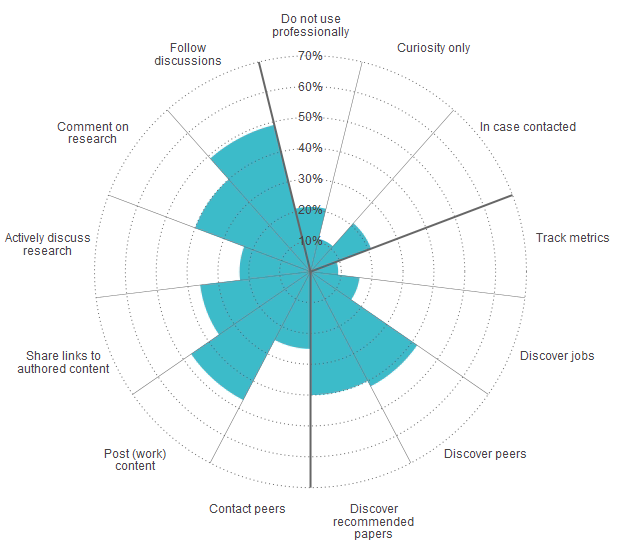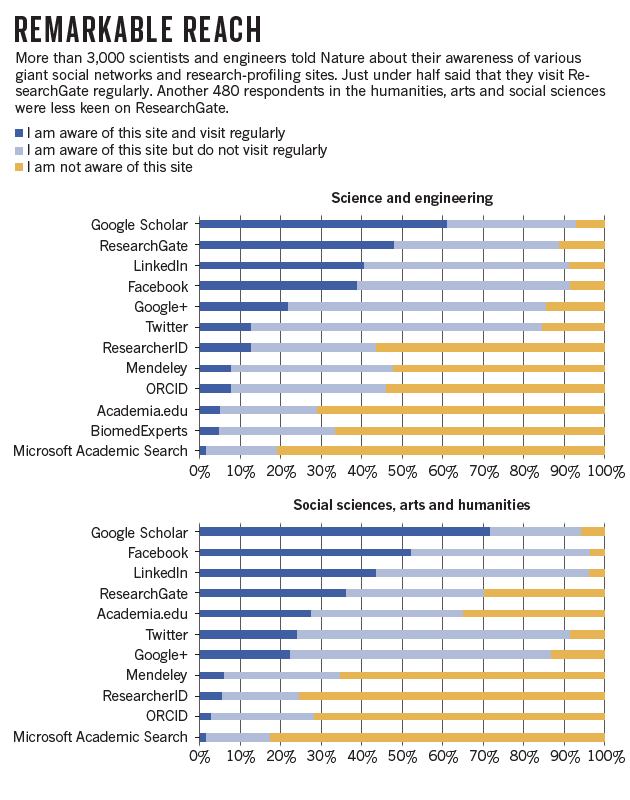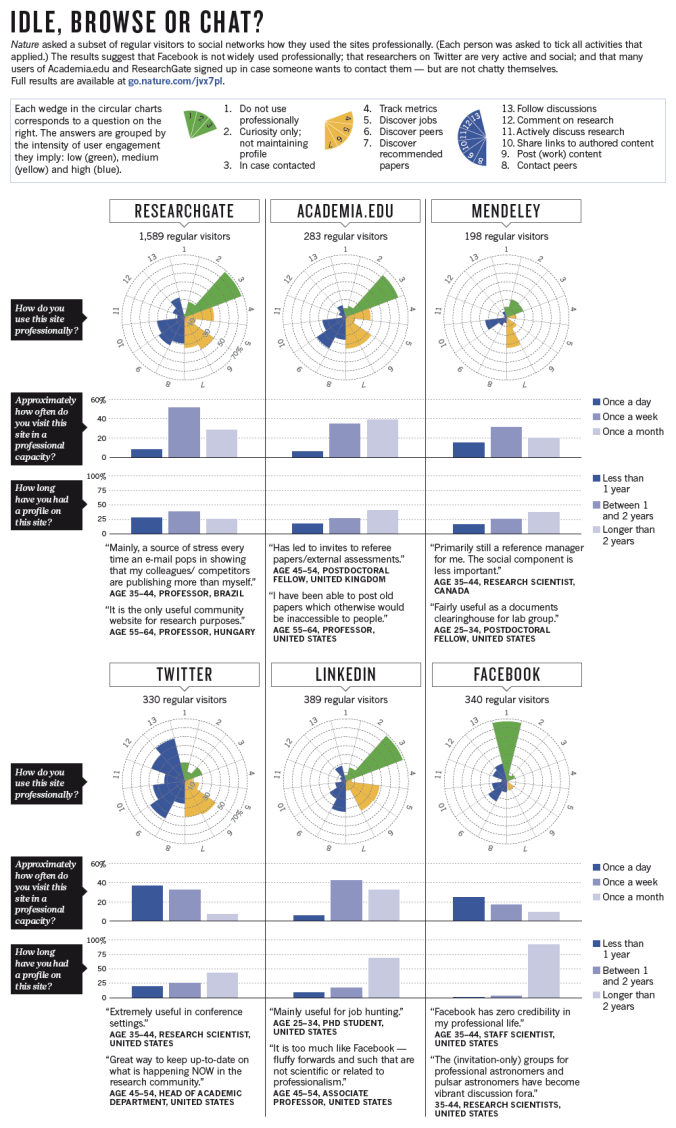Author: Richard Van Noorden
Original: Excerpts reprinted by permission from Macmillan Publishers Ltd: Nature 512,126-129, copyright (2014)

Why scholars use social media (Twitter)
Adapted by permission from Macmillan Publishers Ltd: Nature 512,126–129, copyright (2014)
“A few years ago, the idea that millions of scholars would rush to join one giant academic social network seemed dead in the water. The list of failed efforts to launch a ‘Facebook for science’ included Scientist Solutions, SciLinks, Epernicus, 2collab and Nature Network (run by the company that publishes Nature). Some observers speculated that this was because scientists were wary of sharing data, papers and comments online — or if they did want to share, they would prefer do it on their own terms, rather than through a privately owned site.
But it seems that those earlier efforts were ahead of their time —or maybe they were simply doing it wrong. Today, ResearchGate is just one of several academic social networks going viral. San Francisco-based competitor Academia.edu says that it has 11 million users. “The goal of the company is to rebuild science publishing from the ground up,” declares chief executive Richard Price, who studied philosophy at the University of Oxford, UK, before he founded Academia.edu in 2008, and has already raised $17.7 million from venture capitalists. A third site, London-based Mendeley, claims 3.1 million members. It was originally launched as software for managing and storing documents, but it encourages private and public social networking. The firm was snapped up in 2013 by Amsterdam-based publishing giant Elsevier for a reported £45 million (US$76 million).”
“Despite the excitement and investment, it is far from clear how much of the activity on these sites involves productive engagement, and how much is just passing curiosity — or a desire to access papers shared by other users that they might otherwise have to pay for. . . . In an effort to get past the hype and explore what is really happening, Nature e-mailed tens of thousands of researchers in May to ask how they use social networks and other popular profile-hosting or search services, and received more than 3,500 responses from 95 different countries.”
For study infographics, see below. For more on the survey findings and to read the complete Nature article: http://www.nature.com/news/online-collaboration-scientists-and-the-social-network-1.15711.

